第9章 THE CHILD FATHER OF THE MAN(1)
R.L.STEVENSON was born on 13th November 1850, the very year of the death of his grandfather, Robert Stevenson, whom he has so finely celebrated.As a mere child he gave token of his character.
As soon as he could read, he was keen for books, and, before very long, had read all the story-books he could lay hands on; and, when the stock ran out, he would go and look in at all the shop windows within reach, and try to piece out the stories from the bits exposed in open pages and the woodcuts.
He had a nurse of very remarkable character - evidently a paragon -
who deeply influenced him and did much to form his young mind -
Alison Cunningham, who, in his juvenile lingo, became "Cumy," and who not only was never forgotten, but to the end was treated as his "second mother." In his dedication of his CHILD'S GARDEN OF VERSES
to her, he says:
"My second mother, my first wife, The angel of my infant life."
Her copy of KIDNAPPED was inscribed to her by the hand of Stevenson, thus:
"TO CUMY, FROM HER BOY, THE AUTHOR.
"SKERRYVORE, 18TH JULY 1888."
Skerryvore was the name of Stevenson's Bournemouth home, so named after one of the Stevenson lighthouses.His first volume, AN
INLAND VOYAGE has this pretty dedication, inscribed in a neat, small hand:
"MY DEAR CUMY, - If you had not taken so much trouble with me all the years of my childhood, this little book would never have been written.Many a long night you sat up with me when I was ill.I wish I could hope, by way of return, to amuse a single evening for you with my little book.But whatever you think of it, I know you will think kindly of THE AUTHOR."
"Cumy" was perhaps the most influential teacher Stevenson had.
What she and his mother taught took effect and abode with him, which was hardly the case with any other of his teachers.
"In contrast to Goethe," says Mr Baildon, "Stevenson was but little affected by his relations to women, and, when this point is fully gone into, it will probably be found that his mother and nurse in childhood, and his wife and step-daughter in later life, are about the only women who seriously influenced either his character or his art." (p.32).
When Mr Kelman is celebrating Stevenson for the consistency and continuity of his undogmatic religion, he is almost throughout celebrating "Cumy" and her influence, though unconsciously.Here, again, we have an apt and yet more striking illustration, after that of the good Lord Shaftesbury and many others, of the deep and lasting effect a good and earnest woman, of whom the world may never hear, may have had upon a youngster of whom all the world shall hear.When Mr Kelman says that "the religious element in Stevenson was not a thing of late growth, but an integral part and vital interest of his life," he but points us back to the earlier religious influences to which he had been effectually subject.
"His faith was not for himself alone, and the phases of Christianity which it has asserted are peculiarly suited to the spiritual needs of many in the present time."
We should not lay so much weight as Mr Kelman does on the mere number of times "the Divine name" is found in Stevenson's writings, but there is something in such confessions as the following to his father, when he was, amid hardship and illness, in Paris in 1878:
"Still I believe in myself and my fellow-men and the God who made us all....I am lonely and sick and out of heart.Well, I still hope; I still believe; I still see the good in the inch, and cling to it.It is not much, perhaps, but it is always something."
Yes, "Cumy" was a very effective teacher, whose influence and teaching long remained.His other teachers, however famous and highly gifted, did not attain to such success with him.And because of this non-success they blamed him, as is usual.He was fond of playing truant - declared, indeed, that he was about as methodic a truant as ever could have existed.He much loved to go on long wanderings by himself on the Pentland Hills and read about the Covenanters, and while yet a youth of sixteen he wrote THE